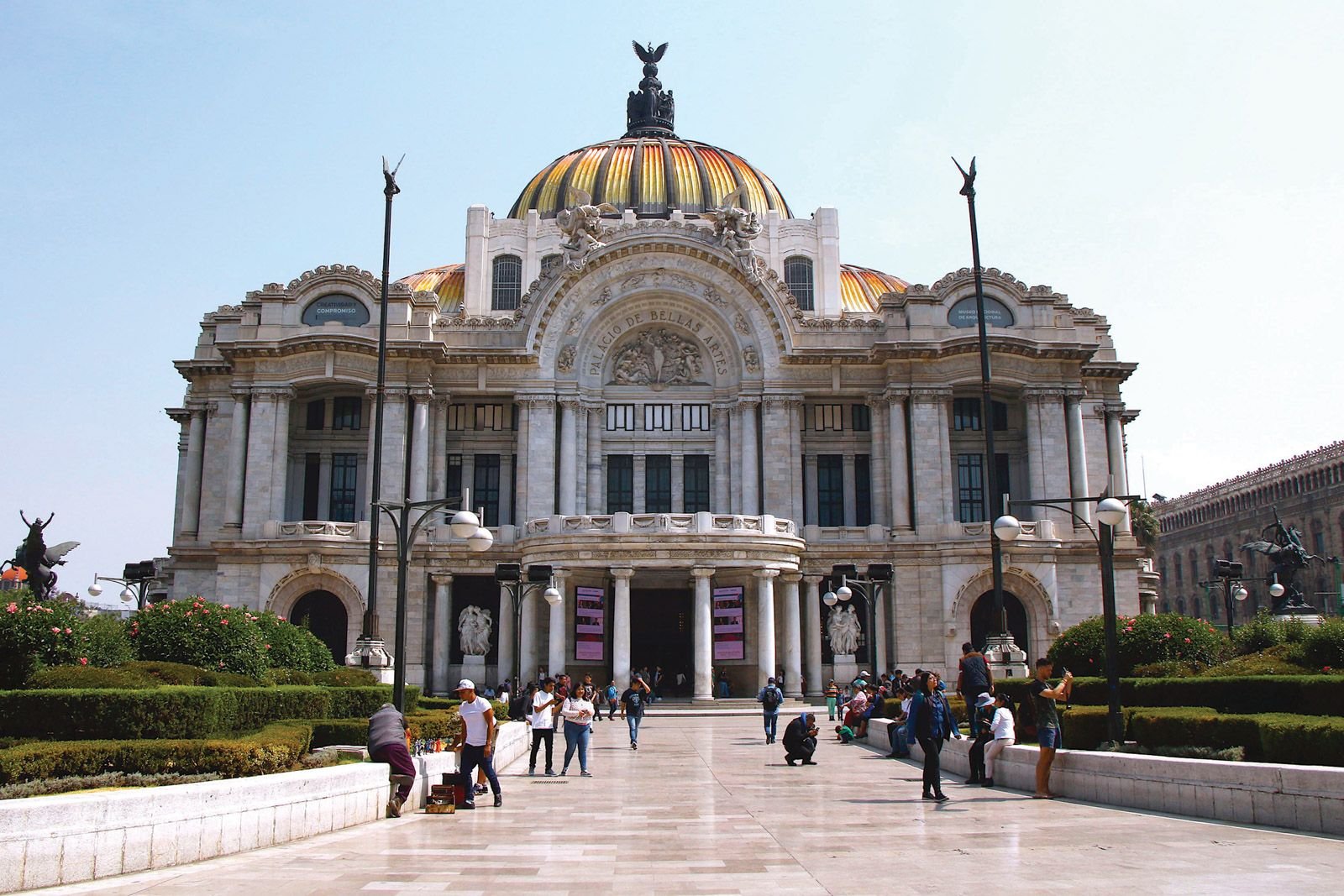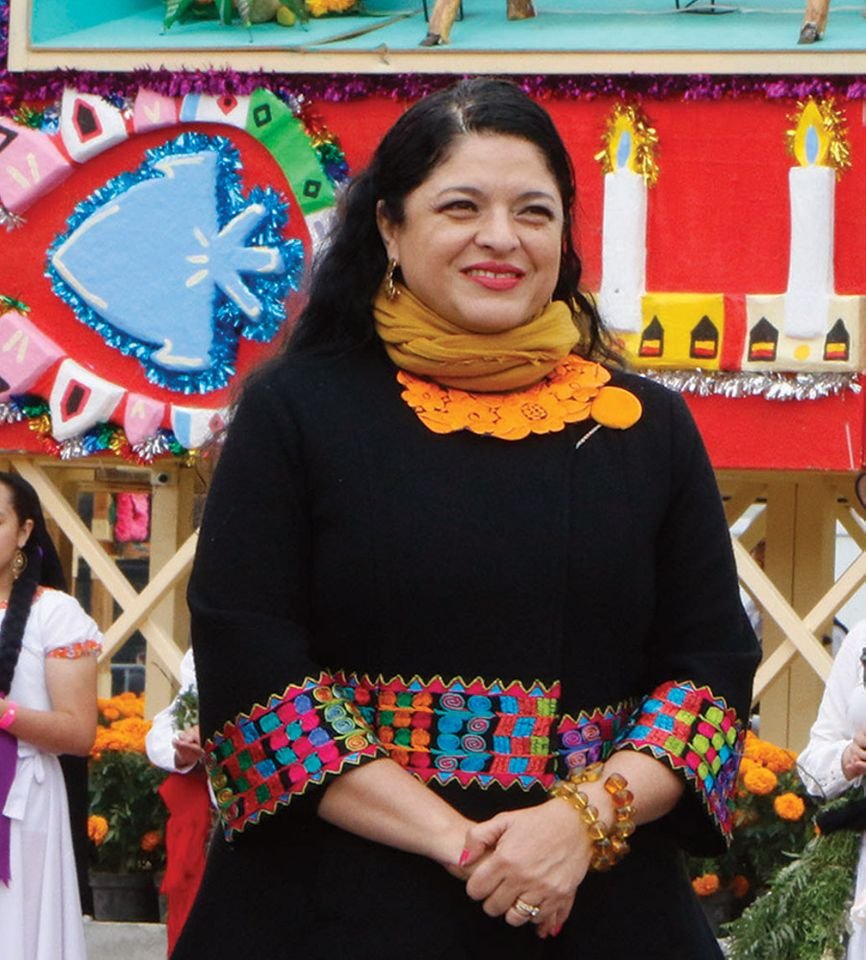Mexico's culture crisis: pandemic leads to budget cuts that leave many workers unpaid while vanity projects receive millions

Written by Elizabeth Mistry, and published originally by The Art Newspaper, March 11, 2021.
As Mexico’s cultural economy enters the second year of the pandemic, a funding crisis and accusations of favouritism towards a few projects are threatening the long-term survival of the country’s publicly funded museums and heritage sites.
Citing corruption and waste under previous administrations, centre-left President Andrés Manuel López Obrador announced hefty budget cuts across all government departments in May 2019. The ministry of culture lost 75% of its operating budget and expects to receive just $693m this year, a severe blow to arts institutions and those who depend on them for their livelihoods.
Public museums, which are the responsibility of the National Institute of Fine Arts and Literature (INBAL), postponed or cancelled plans for maintenance, exhibitions and education programmes. Conservation work at archaeological sites, overseen by the National Institute for Archaeology and History (INAH), has been drastically cut back.
Activists have cautiously cheered a new government commitment to clear the backlog of salaries for 800 INBAL workers and museum staff, but the prospects for financing exhibitions remain uncertain. The Mexico City government has pledged money to three museums, the Museo de Arte Moderno, the Museo Tamayo and the Sala de Arte Público Siqueiros, for maintenance and refurbishment.
A handful of the capital's museums, including the Museo Tamayo and the Museo Nacional de Antropologia, have reopened this week with reduced capacity and opening hours. But the majority of venues in Mexico City and the regions remain closed due to Covid-19. Many are continuing to develop online content and set up online shops to counter the loss of ticket sales and retail income.
Several thousand cultural workers had not received their full salaries, in some cases for as long as ten months
The fraught situation of freelance workers in the cultural sector has meanwhile become even more precarious. Last year it was revealed that thousands were working for state institutions as de facto permanent employees without health insurance, job security or regular wages under temporary contracts known as Capítulo 1000 and Capítulo 3000.

The Art Newspaper spoke to several people hired under temporary contracts. Helena Rangel, a coordinator at the Palacio de Bellas Artes cultural centre in Mexico City, and Edgar Ali Villalba Herrera, a conservation technician at INBAL and a spokesman for the employment compensation movements #YaPágameINBA and #conTRATOdigno, said that several thousand cultural workers across the country had not received their full salaries, in some cases for as long as ten months.
Fear for the future of Mexico’s cultural infrastructure prompted Mami Kataoka, the president of the International Committee for Collections and Museums of Modern Art (Cimam), and the director of Japan’s Mori Art Museum, to write last December to the Mexican secretary of culture, Alejandra Frausto Guerrero. In an open letter, Kataoka called on Frausto Guerrero “as the guardian of Mexico’s culture to secure the funding urgently needed to ensure the survival of these vital institutions”. Mexican museum professionals “do not consider themselves at liberty to respond publicly to the critical situation that they find themselves in without fear of retribution”, she said.
Cimam’s appeal was also addressed to Lucina Jiménez, the director of INBAL, and Mexico’s foreign secretary, Marcelo Ebrard, a former Mexico City mayor whose department recently looked into setting up an outpost of France’s Centre Pompidou in the Mexican capital. “Now is not the time for new buildings,” says Luis Vargas, the founder of arts consultancy Aura. “We need to fix the systemic problems in front of us.”
In a reply, Frausto Guerrero emphasised the challenges that a worldwide health emergency pose to the government’s work and voiced its commitment to upholding the rights of all Mexicans to access culture. “No cultural worker, curator or museum director has suffered any reprisals for expressing themselves freely,” she wrote. The office of the secretary of culture did not respond to requests for further comment.
Off the rails
Like many others, Vargas is incredulous that a reported $127m in government funds is initially being allocated to a pet project of President López Obrador, a proposed new cultural hub in the heart of Mexico City’s Chapultepec Park to be overseen by the artist Gabriel Orozco. The project is mired in controversy and there is now a petition calling for construction plans to be suspended and for a national consultation on the scheme.
The independent curator Cuauhtémoc Medina cites another project that has been spared severe funding cuts: the controversial Tren Maya (Maya Train) development, which aims to extend a rail network into the nexus of indigenous Maya culture on the Yucatán peninsula in southern Mexico and make its historic sites more accessible.
Amanda de la Garza, the director of the MUAC contemporary art museum of the National Autonomous University of Mexico, says: “Given the crisis we are facing, it would better if the president could make sure all the workers who are owed money by the government are paid and then use the rest to stabilise the sector. That would be the best cultural legacy.”
The strife has been accompanied by the recent departures of two prominent Mexican cultural officials: Natalia Toledo, the daughter of the late artist Francisco Toledo, who quietly resigned from an undersecretary post at the ministry of culture in December, and Giovana Jasperson, the secretary of culture for the western state of Jalisco, who cited budget cuts and a lack of support as her reasons for leaving.
De la Garza anticipates that it may be several more months before museums can reopen, as institutions including the MUAC await the go-ahead under the national system of Covid-19 alert levels. In the meantime, the sector is likely to see organisations and individual arts workers turning to online fundraising appeals to stay afloat.
Appeared in The Art Newspaper, 332 March 2021.